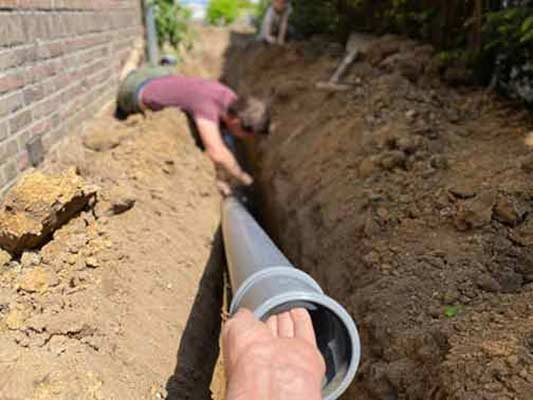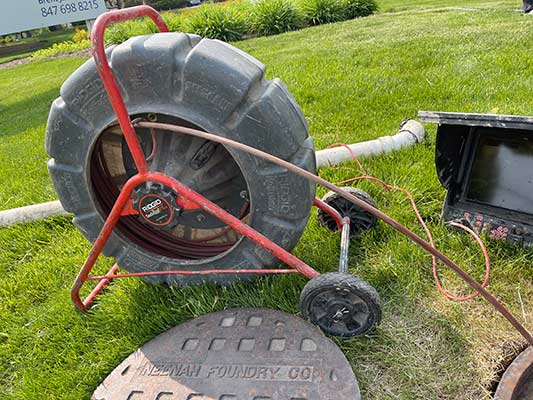
If you’re a homeowner or a property owner, it’s important to understand the lifespan of your sewer lines and when you may need to consider replacing them. Below we will explore the factors that influence the longevity of sewer lines and provide you with some useful information to help you make informed decisions regarding the maintenance and replacement of your sewer system.
Understanding Sewer Line Lifespan
Before diving into the frequency of replacement, let’s first understand how long sewer lines typically last. The lifespan of sewer lines can vary depending on several factors. The material used, the quality of installation, and the maintenance practices all play a significant role in determining how long a sewer line will function properly.
Traditional sewer pipes were commonly made of clay, cast iron, or Orangeburg (bituminized fiber pipe), which have a lifespan of around 50 to 75 years. However, modern sewer lines are usually made of more durable materials such as PVC (polyvinyl chloride) or HDPE (high-density polyethylene), which can last over 100 years with proper care.
Factors Affecting Sewer Line Lifespan
Now that we know the potential lifespan of sewer lines, let’s get into the factors that can impact their longevity:
Material
The material of the sewer line is an important factor in determining its lifespan. As mentioned earlier, older pipes made of clay, cast iron, or Orangeburg are more prone to wear and deterioration. On the other hand, modern materials like PVC and HDPE offer enhanced durability and longevity.
Quality of Installation
The quality of the initial installation plays a vital role in the lifespan of sewer lines. Improper installation techniques, such as inadequate slope or incorrect connections, can lead to premature wear and potential failures in the system. It is crucial to hire experienced professionals who follow industry best practices for installation.
Environmental Factors
The surrounding environment can significantly impact the lifespan of sewer lines. Factors like soil quality, tree roots, extreme temperatures, and chemical exposure can all contribute to the deterioration of sewer pipes. For instance, tree roots seeking moisture can infiltrate sewer lines, causing blockages and damage over time.
Maintenance and Care
The way sewer lines are maintained and cared for also affects their longevity. Regular preventive maintenance, including drain cleaning, inspections, and timely repairs, can help extend the lifespan of your sewer system. Neglecting maintenance can lead to the buildup of debris, clogs, and corrosion, which can eventually result in the need for replacement.

Sewage backup or leaks can emit foul smells that should not be ignored.
Signs that Your Sewer Line Needs Replacement
While sewer lines are designed to be durable, they are not invincible. Here are some common signs that indicate your sewer line may be in need of replacement:
Frequent Clogs
If you notice that your drains are frequently clogged or slow to drain, it could be an indication of a damaged sewer line. Persistent clogs even after attempts to clear them may require further investigation.
Foul Odors
Unpleasant odors coming from your drains or yard can be a sign of a sewer line issue. Sewage backup or leaks can emit foul smells that should not be ignored.
Sewage Backups
If sewage backs up into your home or yard, it is a clear indication of a sewer line problem that needs immediate attention. This can pose serious health risks and should be addressed promptly.
Mold or Mildew Growth
Excessive moisture caused by a damaged sewer line can create the perfect environment for mold and mildew to thrive. If you notice mold growth or a persistent musty smell, it is important to investigate the source.
Visible Damage
Physical damage to your sewer line, such as cracks, leaks, or collapsed sections, may require replacement. Aging pipes or environmental factors can cause visible wear and tear.
Plumbing System Age
If your plumbing system is reaching the end of its expected lifespan, it may be time to consider replacing the sewer lines proactively. Aging systems are more prone to failures and can cause significant damage if not addressed in a timely manner.

Regular sewer line inspections carried out by professionals can help identify potential issues before they escalate.
Maintaining Sewer Lines for Longevity
While sewer lines will eventually need replacement, there are measures you can take to maximize their lifespan:
Annual Inspections
Regular camera inspections of your sewer line carried out by professionals can help identify potential issues before they escalate. By spotting early signs of wear or damage, you can address them promptly, avoiding costly repairs or replacements down the line.
Preventive Maintenance
Implementing a preventive maintenance routine can help keep your sewer lines in good condition. This includes regular drain cleaning to prevent clogs, as well as addressing any leaks or damage as soon as they are detected.
Proper Disposal Practices
Avoid flushing any non-biodegradable or harmful substances down your drains. Items like wipes, grease, chemicals, and pharmaceuticals can contribute to clogs or damage within your sewer lines.
Tree and Plant Placement
If you have trees or large plants near your sewer lines, consider their placement carefully. Tree roots are a common cause of sewer line damage, so it’s important to keep them a safe distance away to reduce the risk of infiltration.
Everything Considered
Knowing when sewer lines need to be replaced is crucial for every homeowner or property owner. By understanding the factors that influence the lifespan of sewer lines and recognizing the signs of potential issues, you can take proactive steps to maintain your sewer system and avoid costly emergencies.
Remember, regular inspections and preventive maintenance are key to extending the lifespan of your sewer lines. By investing in the care of your sewer system, you can ensure the reliable and efficient disposal of wastewater from your property for years to come.